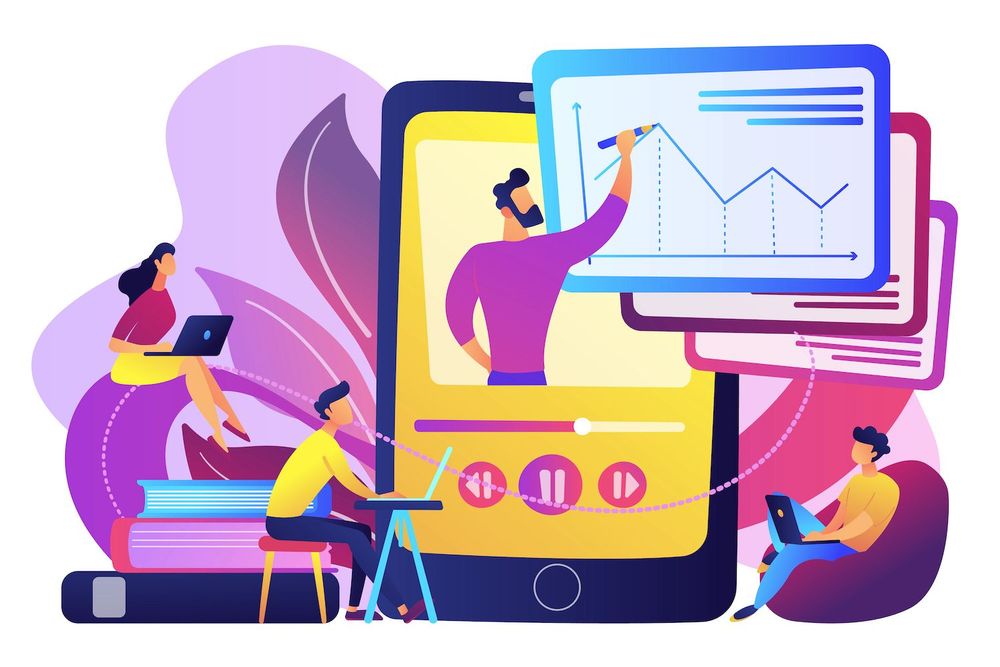Does the Epic Wants for App Stores What Other game developers Really Wanting? -
As mobile game and app developers struggle to breathe under the duopoly tax of 30% that players pay almost all revenues from mobile games worldwide, Epic Games has emerged as the leading company in the gaming industry fighting for open computing for mobile.
Privately, they asked large and small game studios what they wanted in the game. Here are the answers they gave to hear.
Background: The gradual death of Open Computing, and the 30% tax on applications
Computing has never been more open than it is today. The video game industry as well as developers were relying on free computing using PC and Mac platforms since it allowed the developers to create titles in any way they like, enjoy close relationships with their players and select payments that are suitable for the game. There were no gatekeepersonly a computer players and games. The way we live is changing.
In the present, over half of the time spent on screens for computing is on mobile devices, and a proportion that is increasing. In addition, almost 100percent of the smartphone OS market share is split between Apple as well as Google. Thanks to this domination on mobile market share as well as restrictive controls on distribution of games and internet-based commerce, the world of free computing may be now in danger like never before. This is causing a huge cost on both consumers as also app and game creators.
In this case In this instance, both Google and Apple's app stores have a 30% price for games and other related games distributed via their platforms. Apple controls the only control over distribution of games and online shopping through iOS devices. But, Google allows OEM marketplace applications as well as the sideloading of mobile games. However it restricts third-party game-based payment options for games that are distributed via Google Play.
Google Play does offer a payment integration option that third-party companies can use to a limited number of game creators via its " user choice billing" pilot However "user choice billing" is associated with expensive evergreen market fees ranging between 26% and 36%, even if you choose to use your own payment provider and accept all the responsibility and risk associated with payments.
The effect of Apple as well as Google's control over a significant portion of computing worldwide is that there's a standard 30% tax on mobile apps and games, that's collected by users. The tax is obstructing game developers, which hinders open computing as well as eCommerce. Due to this stranglehold in open computing, the developers of games big and small are convinced that they must change their ways.
What are game designers that aren't Epic Are they looking for?
Our staff started a long-running journey that lasted a short time to talk with game studios small and large about the things they'd like to have happen to rules for mobile games. Though not everyone was in agreement about every aspect, these are the three top things they shared with them they wanted to see:
1. iOS to support sideloading games with no scare screens.
iOS has been restricted for a long time "sideloading" applications as well as games when applications are downloaded outside the App Store through the site of the developer, or from an different market. The sideloading feature allows users to purchase and developers distribute and sell their games however they wish, and which the user is willing to comply with. Android allows sideloading of apps and games, but with the help of hefty warnings in the form of "scare screens" that warn users of mobile phones of the dangers of "downloading apps from the internet." Most game designers we talked to believed that Apple would be able to allow sideloading and that Apple and Google should not use the excessive self-serving screens that denounce the the distribution of software outside websites other than their own app stores.
2. Allow unrestricted "steering" in addition to embedded payments through third-party payment platforms.
Both Google and Apple limit pricing in addition to the purchasing options provided through third-party payment providers outside the storefronts for apps. Similar items could be available for an affordable cost for the buyer however game designers are unable to direct their users to these alternatives, connect to other purchase options, or embed an experience from a third party into their games. Although many game designers spoke to saw a huge advantages to using store applications, the general choice was to give users and developers the ability to pick and choose, removing from steering and limitations on payment.
3. Zero fee on steering or embedded payments.
The ability to allow steering and embedded payment is one thing. But the way Google has done it with its "user billing option" pilot, the capacity to do something as well as financial motivation to perform the thing are two separate factors. The test of "user option billing" featuring a still-massive 26% charge for payments from third party payment service providers and the additional charges those providers charge, this results in no benefit to the majority of game creators. Game developers we talked to thought that zero was an appropriate quantity for transactions that are not available in the store for apps. Many were to be in favor of an incentive of some kind in exchange for app stores, helping in driving the download and use of games. However the cut of 26% of all third-party transactions for the rest of time differs from what game creators believed would be fair.
What's next?
While there are a myriad of specific and nuanced concerns about the way that app stores function that developers want to hear about three main demands are the root of what they believe would be the most significant change to open computing on mobile devices.
About

David Nachman David is the chief executive of , an established, full-service provider in e-commerce for software businesses. David is charged with managing the growth of the company based on its impressive track record in providing industry-leading ecommerce solutions to the fast-growing market of software. For the last twenty decades, David worked in various positions from functional vice presidents to CEO at high-growth companies including Vision, Velocify, and HireRight.
Article was posted on here
